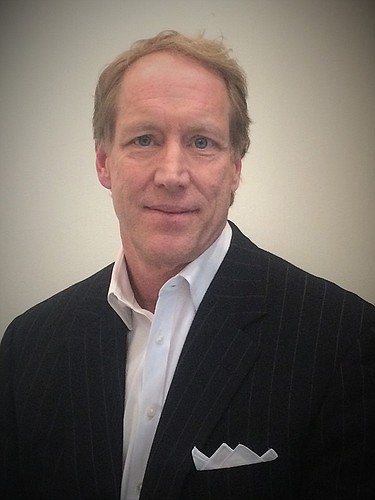- November 25, 2024
-
-
Loading

Loading

ROGER THOMAS
President, COO and Founding Principal
Workspace Property Trust Horsham, Pennsylvania
Roger Thomas leads Workspace Property Trust, which last month completed a $969 million acquisition of a portfolio of office properties from Liberty Property Trust, including numerous properties in the Tampa area.
Workspace, in conjunction with investment firms Safanad and Square Mile Capital Management LLC, bought 108 buildings and more than 26 acres from Liberty, a commercial real estate landlord in Hillsborough County.
In the Tampa area, Workspace bought 34 buildings totaling 1.8 million square feet. The company also acquired properties in Philadelphia, Phoenix, Sunrise, Boca Raton and Miramar in South Florida and Minneapolis. Prior to joining Workspace, Thomas worked for two decades for Mack-Cali Realty Corp. as executive vice president, general counsel and secretary.
Now that the acquisition from Liberty is completed, what are Workspace's immediate plans in the Tampa area?
At this stage of the game, we're simply digesting, if you will, the various properties, and getting a handle on the markets that they're located in. Obviously, we already know a fair amount about some of these cities.
We like the Tampa market a lot, and we're looking to expand our footprint there, if possible, in the future. We have a great team on the ground in Tampa, and we think it's a vibrant market that's certainly poised for future growth. But from an overarching perspective right now, though, we're mainly focused on getting the details of the transaction buttoned down.
How do you plan to grow the portfolio in Tampa?
At this stage, it makes more sense to acquire properties in that area than to build them, we think. I certainly don't think that even as strong as the office market's been there that we'll see spec development anytime soon. I wouldn't be surprised if some build-to-suits come out of the ground within the next 18 months there, however.
But from a growth perspective in Tampa right now, you can still buy properties at below replacement cost, so it's much more cost effective to buy than to build, given the economics.
Oftentimes, in the wake of an acquisition, buyers make capital improvements. Is Workspace planning any upgrades or changes to the former Liberty properties?
We certainly intend to make improvements where they'll be beneficial for tenants and our partners, and there are instances, certainly, where that's going to make sense in the short term. But our main focus right now is in putting the Workspace brand on these assets.
Liberty was sort of the old guard — not that they or their assets were old — and we see ourselves as the new guard. And by that I mean we like to consider ourselves as being more relevant, from a space perspective, to the millennial generation, to younger workers in general through the amenities that populate our properties. It's how we hope to differentiate ourselves from Liberty and others.
Describe what you mean by the “Workspace brand.”
We consider the Workspace brand to be the future of suburban office space. We're working to acquire assets in vibrant communities with great access to transportation and infrastructure, areas that have abundant retail and restaurants already in place.
Coupled with that, we look for buildings that are wired up-to-date and that have, or are capable of having, amenities that are desirable and reflect the way people work now. The trend we follow is to make the infrastructure in our buildings cutting edge and provide a base of amenities that will attract a multitude of employees and aid companies in retention efforts.
The $969 million deal that you recently finalized is your second major transaction with Liberty. What is it about its properties that attracted Workspace?
Mainly, it was just a great opportunity for us to pick up some assets in what we consider to be great, targeted markets.
What we see in a lot of submarkets is landlords who have acquired properties at price points so high that they can't, or don't, invest in further maintenance and they can't get out from under their investment without sustaining a loss.
So ultimately, the property suffers from a lack of attention and capital investment, and when that occurs, you can just see that the asset hasn't been all that well cared for.
That's not the case with Liberty. Their properties were well maintained. They felt some pressure to focus on the industrial side of their portfolio, but that wasn't reflected in how they took care of their office space. For us, we have the opportunity to add some value through leasing, and fortunately, we have personnel on the ground in place who have a history with the assets -- I can't underestimate the value of that to us, to have that continuity.
In addition to the properties, we absorbed 25 Liberty employees with this acquisition, and that's a win-win situation. We feel that way about Tampa, too. It's a super market right now, and we're super excited to be there in such a big way.